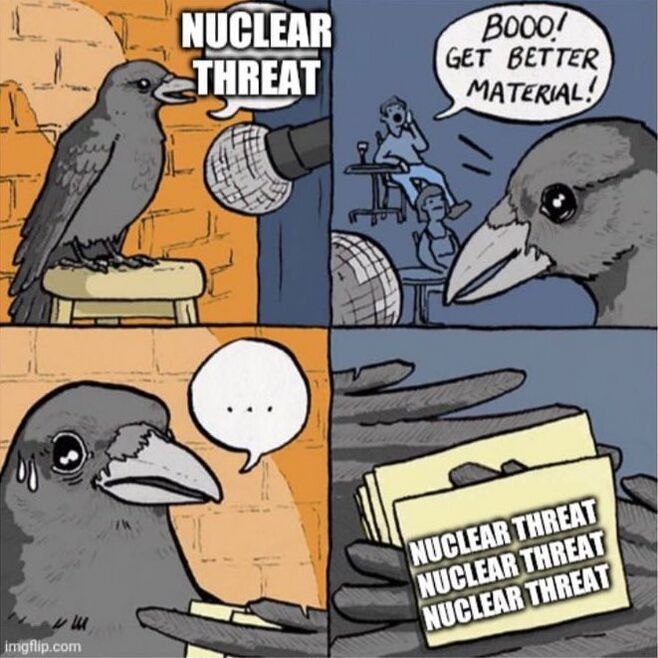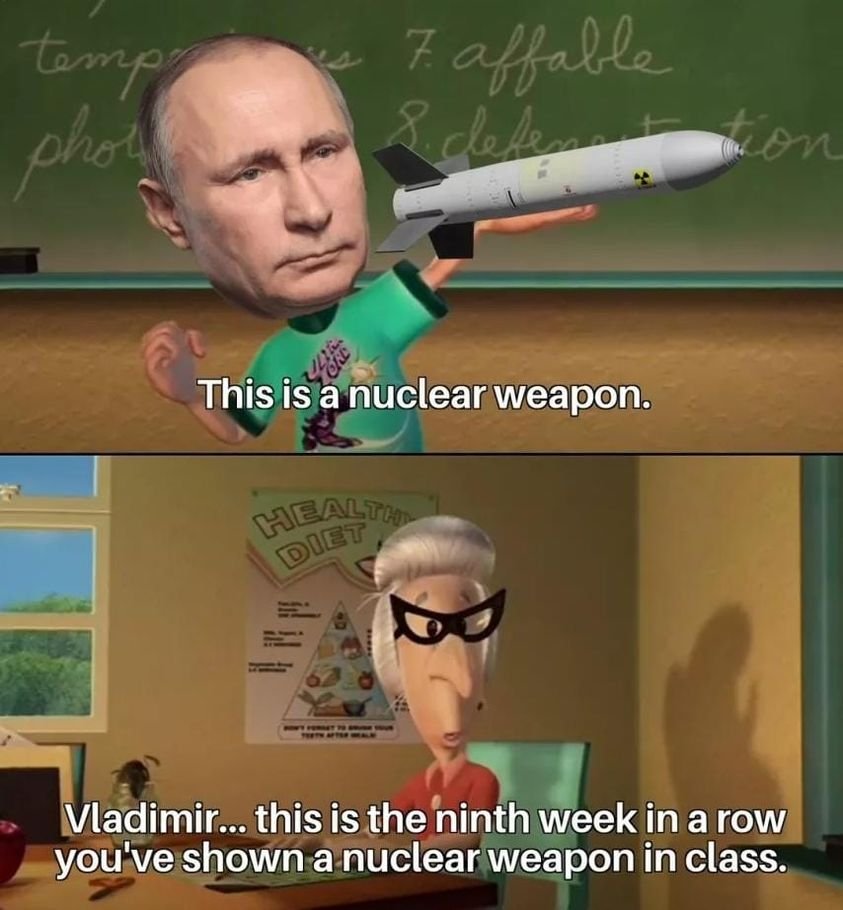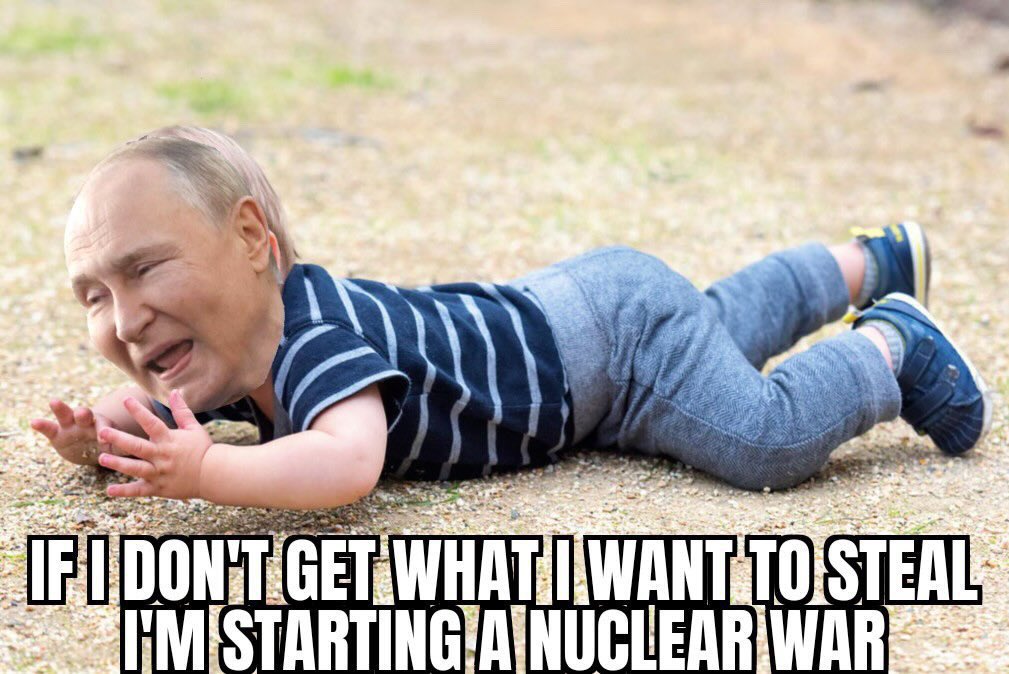In today’s #vatniksoup, I’ll introduce a Belarusian politician and dictator, Alexander Lukashenko. He’s best-known for giving up his country to Russia, and for cracking up political opposition and dissidents in Belarus, ruling the country with an iron fist.
1/19
1/19

Alexander was born in the Byelorussian SSR, living an unhappy childhood with his mother, taunted by his schoolmates due to being fatherless. His father’s identity is not known, but there’s a rumour that his father was a Roma traveler passing through the region.
2/19


2/19


Lukashenko joined the Soviet Communist Party in 1979, and a few years later he became the deputy chairman of a collective farm. By 1990, he had risen to the rank of Deputy to the Supreme Soviet of the Byelorussian SSR. He claimed to be an opponent of corruption…
3/19
3/19

…and in 1993 he accused 70 senior government officials of corruption, including stealing state funds for personal purposes. Apparently these accusations had no merit, but some high-ranking officials resigned nevertheless due to the embarrassment.
4/19


4/19


After the fall of the USSR, Belarus held its first democratic presidential election in 1994. Naturally, Lukashenko ran in the most populist way, claiming to be “neither leftist nor rightist” but “with the people against those who rob and deceive them”.
5/19
5/19

Soon after this, Lukashenko started the Russification process of Belarus. He held a referendum that enabled economic integration with Russia and gave him the power to dissolve the parliament. OSCE stated that the referendum didn’t meet the conditions of being free or fair.
6/19
6/19

Lukashenko was re-elected in 2001 in the first round in an election that was widely considered yet again not free or fair. Putin supported the Belarusian dictator, but for that Lukashenko had to give up control over their section of the Yamal–Europe gas pipeline.
7/19


7/19


In 2004, Lukashenko eliminated presidential term limits, making himself eligible for a lifetime of presidency & he was re-elected again in 2006. This resulted in massive protests, after which he stated that the opposition is “funded by foreign countries,” and is “not needed”.8/19




During early 2000s, Lukashenko allied with other authoritarian regimes, including Syria’s Bashar al-Assad and Iranian supreme leader Ali Khamenei and president Ahmadinejad. He also suggested to Yugoslav President Milošević that Yugoslavia join the Union of Russia & Belarus.
9/19




9/19




During the 2010 election, Lukashenko started cracking down on his opposition, as two other presidential candidates were beaten up and at least seven other candidates were arrested. In Dec 2010, several European foreign ministers published an op-ed criticizing Lukashenko.
10/19



10/19



In 2020, after being re-elected for his sixth term, massive protests erupted across Belarus. The protesters accused Lukashenko of widespread electoral fraud, and opposition candidate Sviatlana Tsikhanouskaya claimed she had received 60-70% of the total vote.
11/19


11/19


Like Yanukovych, Lukashenko was also planning on escaping to Russia if he’d become a “former president”. In Aug 2020, the European Parliament declared Lukashenko “persona non grata” in the EU and claimed that he’s not the president anymore. Lukashenko later took revenge …
12/19


12/19


… vowing to “flood” Europe with “drugs and migrants”. Soon after this, Belarusian tourist agencies started advertising in the Middle East, promoting a hassle-free entry to the EU and its countries with good social welfare system, doubling flights from Baghdad to Minsk.
13/19


13/19


After the election, Alexander became extremely paranoid, walking everywhere wearing a bulletproof vest and carrying a gun. In 2021, FSB claimed that there was a plot by the “Ukrainian nationalists” to launch a military coup and assassination attempt against Lukashenko.
14/19



14/19



To protect his friends, Lukashenko formed a Security Council consisting of his close allies. He then signed a presidential decree, saying that in the event that the president is unable to perform his duties, martial law will be imposed and the Council will take over.
15/19
15/19

Throughout his career, thousands of people in Belarus have become victims of torture, sexual abuse, and other forms of repression. Several opposition figures have also simply disappeared,and the Belarusian secret service have even plotted on assassinating dissidents abroad.
16/19




16/19




Lukashenko managed to turn Belarus into a pro-Kremlin dictatorship by completely destroying the opposition, replacing officials and politicians with his friends, and changing the constitution so that he can stay in power indefinitely.
17/19
17/19

The story of Lukashenko’s rise to power is an important one, as it is something that could happen in many other countries that are now considered democratic.
18/19
18/19

We’ve already seen how Viktor Orban has taken over Hungary using similar strategies as Lukashenko previously did, and a similar faith was planned for Ukraine, too:
19/19


19/19
https://x.com/P_Kallioniemi/status/1650427973709824001


• • •
Missing some Tweet in this thread? You can try to
force a refresh
































